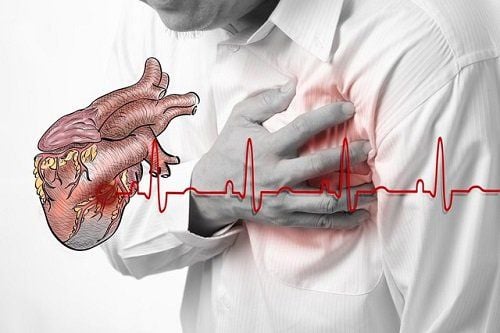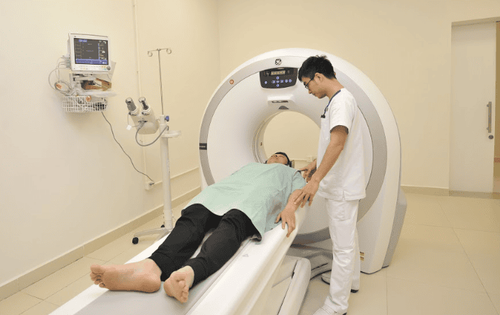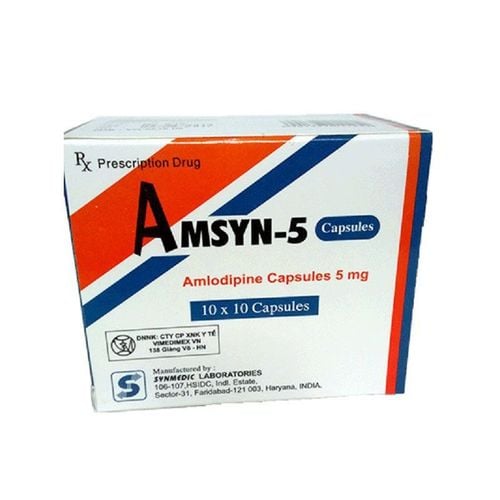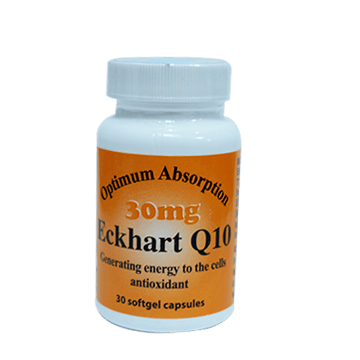This is an automatically translated article.
Sinus arrhythmia is a dysfunction of the sinus rhythm on the human electrocardiogram, causing the heart rate to beat faster, slower or interrupted than the normal human heart rate. Sinus arrhythmia can lead to a number of cardiovascular diseases and other dangerous complications, so it should be detected in time on the electrocardiogram.
1. What is sinus rhythm?
In the human heart structure, the sinus node is a part of the right upper chamber of the heart, also known as the right atrium. Sinus rhythm is defined as a full cycle of the sinus node in the heart and makes the heart beat, or sinus rhythm is considered the body's natural pacemaker. Thanks to sinus rhythm, the first electrical signals can be transmitted to initiate the electrical conduction cycle from the heart. People who are healthy and have no abnormalities in the structure or function of the sinus node will have normal sinus rhythm.
2. What is sinus arrhythmia?
Sinus arrhythmia is an abnormality of the sinus node in the heart that causes the heart beat to become fast, slow, or possibly miss some beats. Clinically, sinus arrhythmias are divided into two main groups: sinus tachycardia and sinus bradycardia. For sinus tachycardia, the measured heart rate in the patient is greater than 100 beats/min, and for sinus bradycardia, the heart rate is less than 60 beats/min. In addition, a special arrhythmia in humans, respiratory sinus rhythm, is a phenomenon that is not harmful to the body and is completely benign. Respiratory sinus rhythm is common in children and tends to decrease as the child matures.
In other words, sinus arrhythmias can be physiological arrhythmias or pathological arrhythmias. For physiological sinus arrhythmia, it can happen when the patient is in front of a psychological state of anxiety, stress... and can return to normal afterwards. In contrast, pathological sinus arrhythmias can be caused by electrolyte disturbances, high fever, dehydration, blood loss or cardiovascular abnormalities such as cardiac neuropathy, heart valve disease. , insufficiency of the sinus node or aging of the sinus node is common in the elderly.
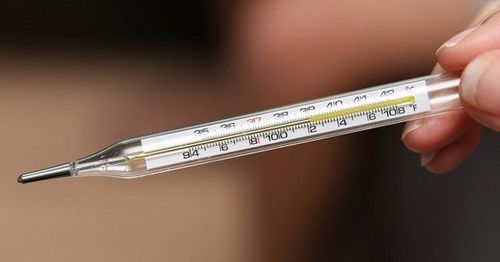
Triệu chứng sốt cao có thể gây lên tình trạng rối loạn nhịp xoang ở người bệnh
Risk factors for pathological sinus arrhythmias may be listed as follows:
Patients with pre-existing hypertension Patients with dyslipidemia Elderly Patients with a history of trauma, myocardial infarction ... leading to damage to the heart Patients with a history of alcoholism, tobacco use, coffee... Patients with obesity or excessive exercise permission of the body. The clinical symptoms in a patient with sinus arrhythmia are:
Feeling of palpitations, angina pectoris, body fatigue, possibly shortness of breath and, more dangerously, sudden death Cases of lead sinus arrhythmia If the heart rate is too fast or too slow, the blood supply to the brain will be reduced, causing some symptoms in the brain such as mood instability, memory impairment, dizziness, language dysfunction, fainting. ... Especially, for patients with sinus tachycardia, a stroke or transient ischemic attack may occur. When children have sinus arrhythmias, there may be some problems such as refusing to breastfeed.
3. Diagnosis and treatment of sinus arrhythmias
To accurately diagnose sinus arrhythmia, it is necessary to record the results of the electrocardiogram along with echocardiography. Some patients have sinus arrhythmia, but it is just an immediate sinus arrhythmia, so the ECG results may not record the exact time of the arrhythmia, so the patient needs to be set up with a Holter heart rate monitor to monitor the arrhythmia. ECG for 24-48 hours for more accurate results. In addition, it is necessary to differentiate sinus arrhythmia with some other pathological conditions such as premature atrial contraction, 2nd degree AV block, 1st degree sinoatrial block...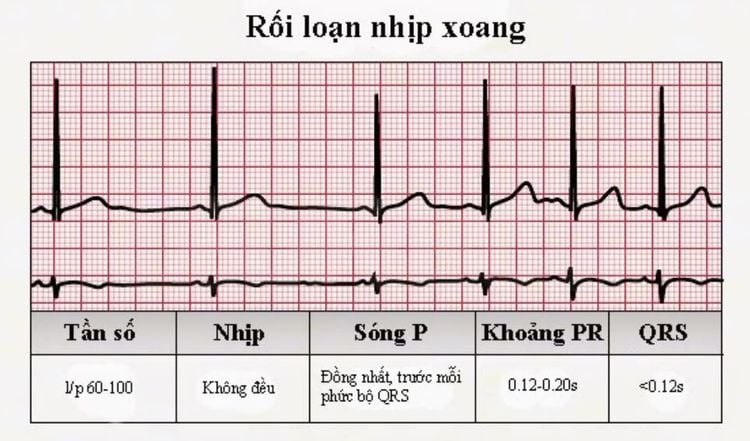
Hình ảnh ECG loạn nhịp xoang
In a patient with pre-existing medical conditions such as cardiovascular disease, sinus arrhythmias can lead to some dangerous complications such as dizziness, shortness of breath or sudden fainting. A very important point about sinus arrhythmias is that this condition can be a risk factor for thrombosis as well as heart failure or possibly a cerebrovascular accident.
To treat sinus arrhythmia, many different methods can be applied on different sinus arrhythmia conditions. It is possible not to intervene, but only to monitor and advise the patient about changing daily lifestyle to relieve the symptoms of sinus arrhythmia.
Some drugs such as Atropin intravenously every 2 hours or every 4 hours a day, Isoproterenol IV infusion can be used in patients with acute sinus arrhythmias. Sinus tachycardia is controlled with the use of some antiarrhythmic drugs such as Digoxin, Propranolol or Quinidine and regular Holter monitoring to avoid further deterioration of the disease. For patients with chronic sinus bradycardia, a pacemaker is required for life. Pregnant women when treating sinus arrhythmias, it is necessary to monitor and adjust the dose of drugs appropriately, avoiding drugs that can affect the development of the fetus such as Amiodarone. In the case of taking medication, the symptoms of sinus arrhythmias are not relieved, other procedures such as pacemaker implantation, stent placement, coronary artery bypass grafting, electrocautery...
Sinus arrhythmias may be indicated. Although it is not an acute or dangerous disease, the patient should not be subjective to this condition, but should observe the symptoms that appear clearly and go to a reputable medical facility. to be examined and detected promptly, thereby reversing the undesirable consequences of sinus arrhythmias.
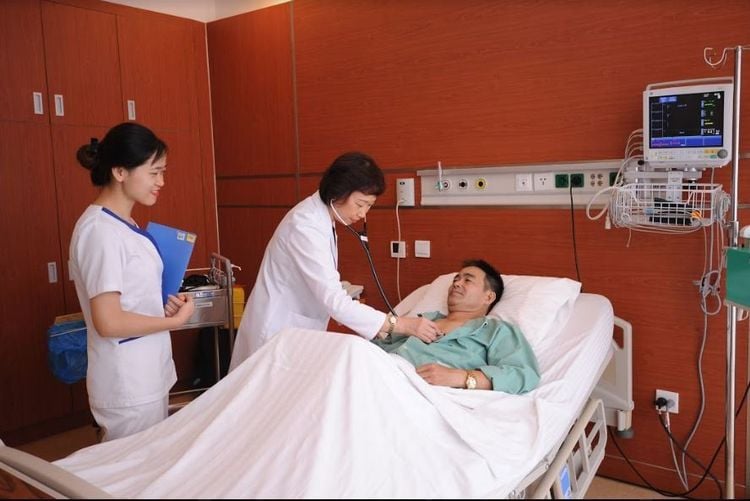
Người bệnh có bệnh lý tim mạch cần được điều trị, tránh nguy hiểm đến sức khỏe lâu dài
To protect cardiovascular health in general and detect early signs of myocardial infarction and stroke, customers can sign up for Cardiovascular Screening Package - Basic Cardiovascular Examination of Vinmec International General Hospital . The examination package helps to detect cardiovascular problems at the earliest through tests and modern imaging methods. The package is for all ages, genders and is especially essential for people with risk factors for cardiovascular disease.
Customers can directly go to Vinmec Health system nationwide to visit or contact the hotline here for support.
MORE
Treatment of coronary stenosis with aortic - coronary artery bypass surgery at Vinmec Is ischemic heart disease dangerous? What to do when you have chronic ischemic heart disease?




